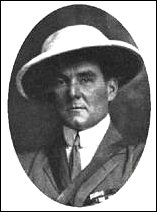After a late afternoon run through the blogging universe, I couldn't help but post one more for Monday. The DailyKos has a great diary on The Week in Fascism, which builds on an article from
Laurence W. Britt in Free Inquiry Magazine. Kudos to Tomtech who plowed through the DailyKos Diaries for entries under each of the 14 signs of a fascist society, arguing that we are getting a bit too close to certain European countries of the 1930s. But for AA readers, I shall just cover the main points which, no doubt, will offend someone (because they are so good!).
Do any of these sound familiar?
1. Powerful and continuing expressions of nationalism. From the prominent displays of flags and bunting to the ubiquitous lapel pins, the fervor to show patriotic nationalism, both on the part of the regime itself and of citizens caught up in its frenzy, was always obvious.
2. Disdain for the importance of human rights. The regimes themselves viewed human rights as of little value and a hindrance to realizing the objectives of the ruling elite.
3. Identification of enemies/scapegoats as a unifying cause. The most significant common thread among these regimes was the use of scapegoating as a means to divert the people’s attention from other problems, to shift blame for failures, and to channel frustration in controlled directions.
4. The supremacy of the military/avid militarism. Ruling elites always identified closely with the military and the industrial infrastructure that supported it. A disproportionate share of national resources was allocated to the military, even when domestic needs were acute.
5. Rampant sexism. [Enough said.]
6. A controlled mass media. Under some of the regimes, the mass media were under strict direct control and could be relied upon never to stray from the party line. [Foxnews.com]
7. Obsession with national security. [!!!]
8. Religion and ruling elite tied together.
9. Power of corporations protected. Although the personal life of ordinary citizens was under strict control, the ability of large corporations to operate in relative freedom was not compromised.
10. Power of labor suppressed or eliminated. [Can you say Freedom-To-Work Laws?]
11. Disdain and suppression of intellectuals and the arts.
12. Obsession with crime and punishment.
13. Rampant cronyism and corruption. Those in business circles and close to the power elite often used their position to enrich themselves. This corruption worked both ways; the power elite would receive financial gifts and property from the economic elite, who in turn would gain the benefit of government favoritism
14. Fraudulent elections. Elections in the form of plebiscites or public opinion polls were usually bogus. When actual elections with candidates were held, they would usually be perverted by the power elite to get the desired result. Common methods included maintaining control of the election machinery, intimidating and disenfranchising opposition voters, destroying or disallowing legal votes, and, as a last resort, turning to a judiciary beholden to the power elite.
Subscribe to:
Post Comments (Atom)

No comments:
Post a Comment